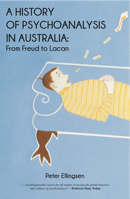At 83, a year before he died in 2007, the iconic North American writer Norman Mailer completed a questionnaire in the magazine Vanity Fair. The interrogation was called The Proust Questionnaire, and Mailer answered it with same respect for language and ideas that he bought to his novels. His responses are refreshing to read, not the least because the man credited by Joan Didion, Hunter S. Thompson and Truman Capote, with creating the narrative non-fiction style called the New Journalism did what few questionnaire-fillers manage – he sidestepped platitudes.
So, rather than fearing death or ageing, Mailer announced that his greatest fear was inanition. Ina-what? – inanition, the state of being empty, without vitality or ideas. It is a close cousin to banality. And when asked about his homeland, Mailer, who with columnist Jimmy Breslin ran for New York mayor under the slogan ‘throw the rascals in’, replied: “We Americans have become so uneasy, so stupid, so guilty and so flatulently patriotic that we are in danger of ruining a fine land”. Overweening piety was Mailer’s strongest dislike, while his motto – excelsior (even higher) confirmed him as an over-achiever. But what I most liked about the replies was what Mailer – married six times with nine children – had to say on his idea of perfect happiness. “Let the next 35 responses offer their clues,” the Pulitzer prize-winner remarked. “A fool draws a road map to his magic city”.
Something similar might be said of psychoanalysis/psychotherapy. These two words, often conflated, but meaning something different, rely on responses to questions. The analyst or therapist can be tempted to use these responses to point the way via some sort of road map. This can be done with the best of intentions. But, as Oscar Wilde famously observed, advice is always fatal. My sense is that, like the hypnotism Freud tried and rejected, it will be short-lived because the advice or suggestion is of you, not of the patient. Therapists, theoretically at least, know this. Unlike the early days of psychoanalysis when analysts – who had not been analysed themselves – would offer instructions and didactic commentary, conventional wisdom now calls for restraint – give the patient time to find their own desire.
Mailer did not say what his idea of perfect happiness was; rather he opted to engage in a dialogue that might throw up a clue, however, oblique, perhaps for himself as much for the questioner and reader. His “magic city” or heart’s desire would emerge through a dialectic; it is a method that began with the Greeks and is still practiced today by the monks of what is left of Tibet. Dialectical inquiry was a tertiary education tool here in Australia, even in medical courses. Many older doctors will admit that the best teacher they had at Melbourne University in the 1950s was Roy “Pansy” Wright, a physiology professor who, as one psychiatrist observed: “never lectured students, but rather taught by a Socratic method, holding a group of 200 medical students together with pointed questions that highlighted key principles”. This method of inquiry does not presume superiority or knowledge of what students (or patients) – want. It is a way of igniting curiousity in the other, and as such, has much in common with the response the novelist, Ernest Hemingway, gave to aspiring writers. “If you want to send a message,” the Nobel laureate said, “use Western Union. If you want to write, it is a matter, as it is in film, of showing not telling.”
We show by speaking. That is what Mailer did in the Vanity Fair interview to arrive at his magic city. There was no precise point, just scattered hints for readers, and for Mailer himself, to interpret. Speech is like that, but only if it is not shackled, or hackneyed. To avoid Mailer’s despised inanition speech must surprise and invent. It must become the territory where the unknown lives; our endless starting point. Whether in the arts, or in analysis, a tongue can speak, can, as French analyst and author J. B. Pontalis says, “go beyond itself only if we are not too much at ease with it, if we feel incompetent to handle it as a tool.” This making of something odd from the familiar may seem strange – particularly in an age that strives to tame words. But it is the only rule of psychoanalysis. What Freud called free association is speaking to surprise yourself. It is a door to the part of us we avoid – the unconscious. It is what artists call inspiration.
It is not exactly Mailer’s magic city, but it is the place we have to go to know who we are and what is pulling our strings. This is because the stories we tell ourselves – on the couch and on the page – are just that, stories, made up from memories that are themselves dubious scenes rescued from oblivion. Perfect happiness may not reside there, or anywhere, save perhaps a glossy like Vanity Fair. But the common or garden variety of happiness can be ferreted out once we speak in a way that exposes the hopeful duplicity of our storytelling. This is what good writers and therapists strive for, acknowledging that, in talking about the past, they lie with every breath they take.
Raymond Chandler nailed the sentiment in his best Phillip Marlowe novel, The Long Goodbye, where he has his detective explain: “Your husband is a guy who can take a long hard look at himself and see what is there. It is not a very common gift. Most people go through life using up half their energy trying to protect a dignity that they never had.”

